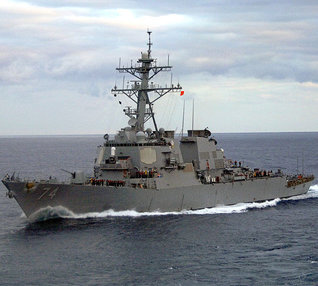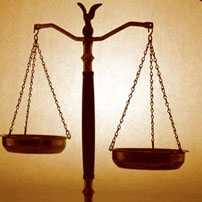Cheating death and fighting communism: that is how a fellow officer once described our job. It was meant to be funny, but as time went on it seemed all too true.
I spent more than ten years in law enforcement, all of it on the street in uniform patrol. I've been a patrol officer, instructor, sergeant and lieutenant.
Do not report crimes here. Nothing here should be considered legal advice. All opinions are my own.
I'm unclear on your situation, and it is a civil matter regardless. Your best bet is to contact a family law attorney and talk to him or her.
He will likely have to initiate court proceedings if he wants to obtain parental rights of a child born out of wedlock. On the other hand, if you are trying to obtain child support from him, you would likely need to start court proceedings.
None of this is legal advice, and you should really contact a family law attorney.
What exactly do you think is going on? Are expired tags considered a heinous crime in your area? If so, let the rest of us know so we can get away from real crime and move there.
It would appear that your husband has a serious addiction, and is not taking responsibility for his actions. Hopefully he hasn't killed or maimed anyone yet, and will not have to opportunity to do so in the future.
Ask his attorney for legal advice, not me.
Yes.
At the very least it would appear that he is trespassing. But, do you know that he doesn't have something worse planned? Rape, robbery, murder?
Door to door salesmen are certainly capable of committing very bad crimes. Additionally, criminals can pose as door to door salesmen with the intent of getting in your house to rape/rob/murder you.
A stranger in your home that is refusing to leave is a serious concern and possibly a very real threat. Make sure you communicate to the dispatchers that the man is a stranger - not a friend or family member - and he is refusing to leave. If you have any level of fear, make sure you communicate that as well.
Navy Officer (Former)
 Do you think there's a chance the US reinstates the draft?
Do you think there's a chance the US reinstates the draft?
School Teacher
 Do you think teachers are underpaid? Why?
Do you think teachers are underpaid? Why?
Employment Lawyer
 Can a man sue if he's denied a job at Hooters?
Can a man sue if he's denied a job at Hooters?
I'm guessing there is more to this story.
Laws in different states dictate what actions may be required of a police officer, but in general terms he or she would talk to you and try to determine if there was some way to help you. In some cases, a police officer may be required to take a suicidal person to a hospital or other medical facility if the person poses a risk to anyone.
If you or someone you know is depressed or suicidal, there are people who can help. Call 1-800-273-8255 from anywhere in the US and they can provide assistance. Alternatively anyone can go to a hospital an explain that they are having some problems and need help.
Depends on the department. Cocaine and ecstacy are serious drugs and can have serious long-term consequences on your brain. I would suggest contacting the department(s) you are insterested in applying to and speak to one of the recruiters about your situation. Any department would require a long interval (several years at least) between hiring and your last use of the drug.
-OR-
 Login with Facebook
Login with Facebook (max 20 characters - letters, numbers, and underscores only. Note that your username is private, and you have the option to choose an alias when asking questions or hosting a Q&A.)
(A valid e-mail address is required. Your e-mail will not be shared with anyone.)
(min 5 characters)
By checking this box, you acknowledge that you have read and agree to Jobstr.com’s Terms and Privacy Policy.
-OR-
 Register with Facebook
Register with Facebook(Don't worry: you'll be able to choose an alias when asking questions or hosting a Q&A.)